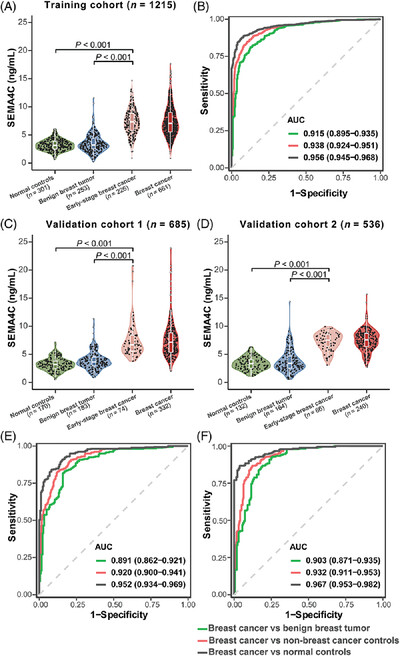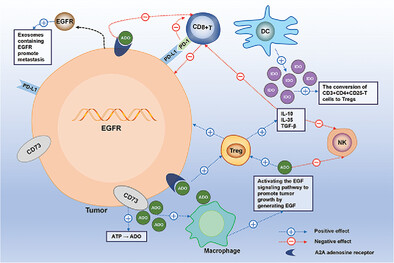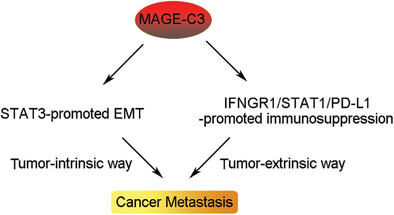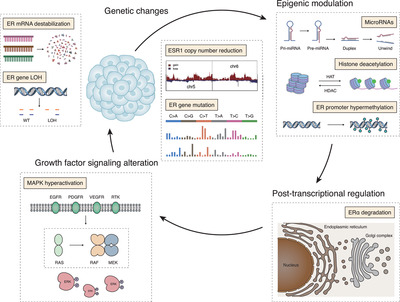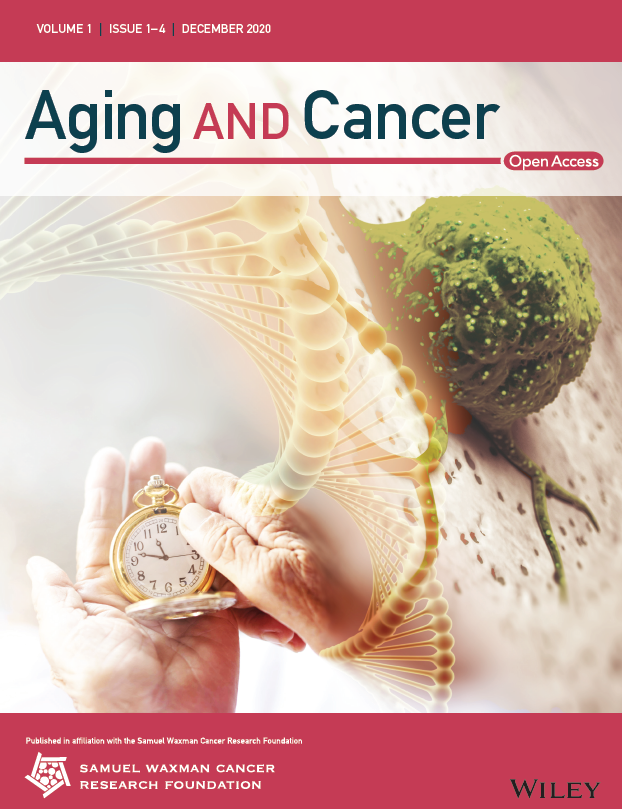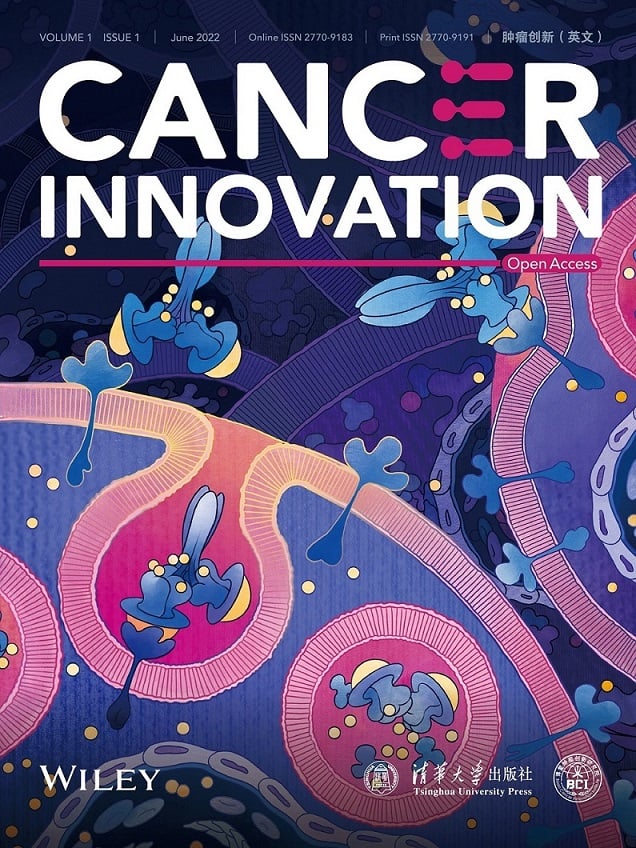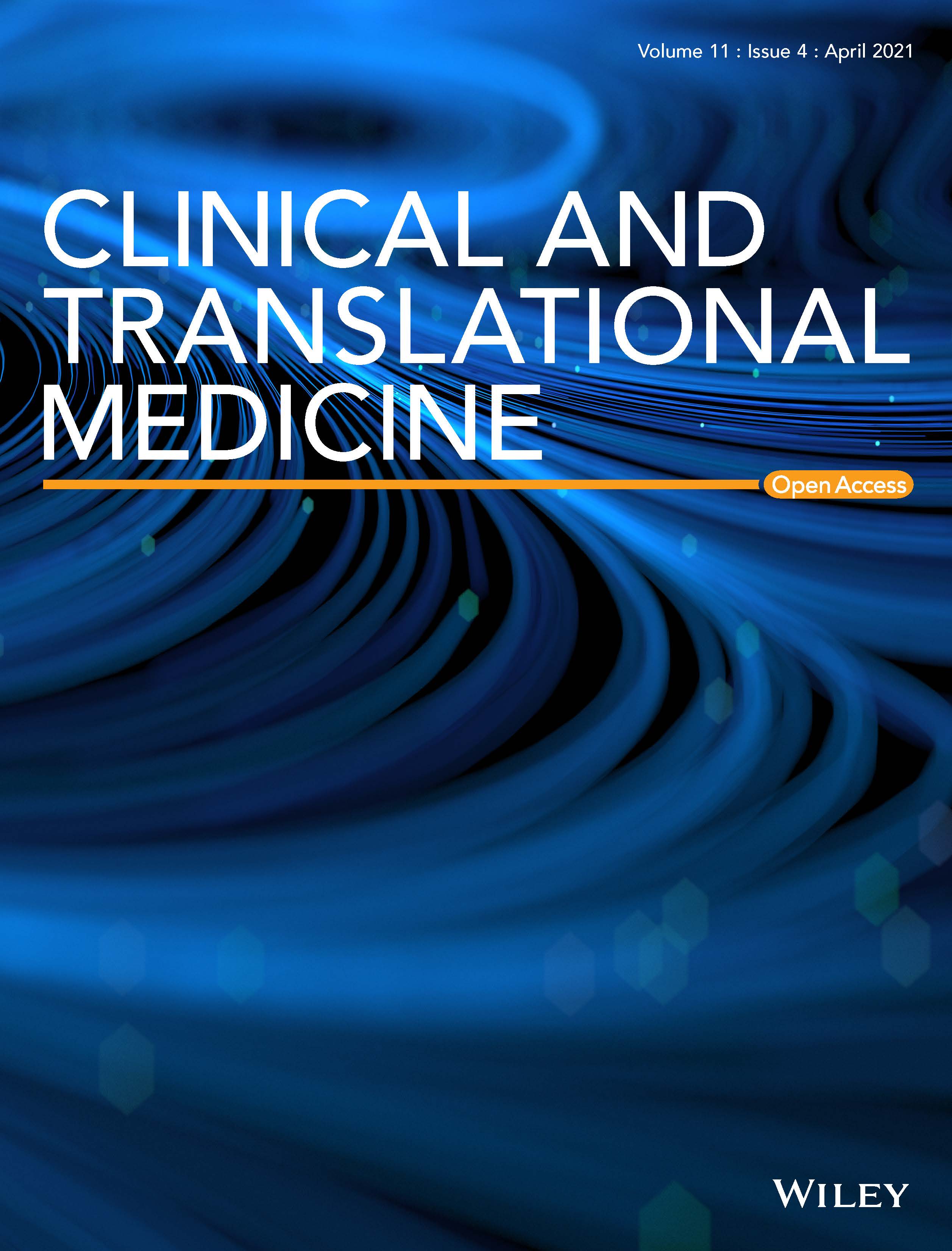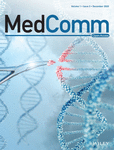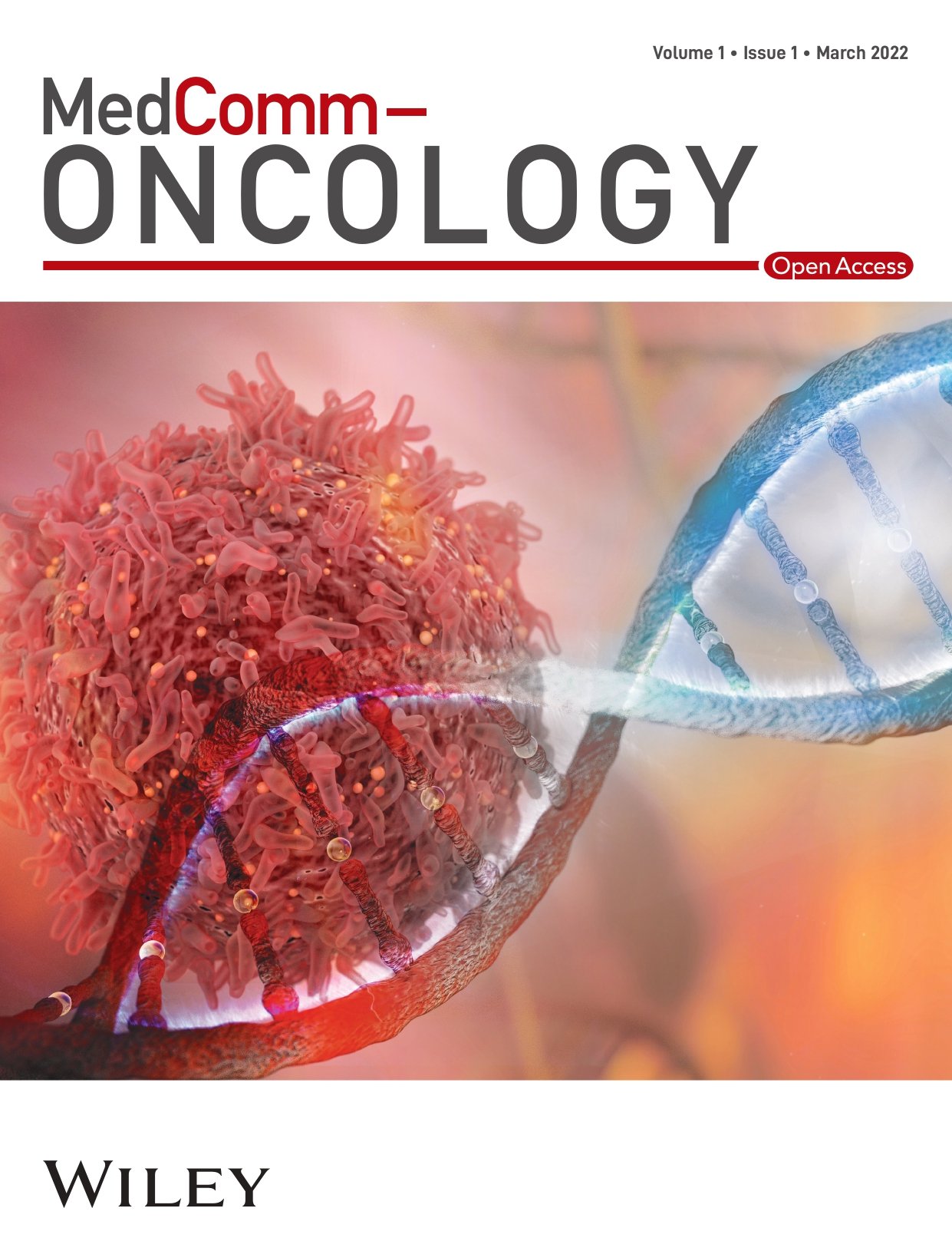Journal list menu
Export Citations
Download PDFs
Thoracic Cancer
Combination of anti-PD-L1 antibody with peptide MEL-dKLA targeting M2 tumor-associated macrophages suppresses breast cancer metastasis
- First Published: 16 February 2022
Long-term outcomes of intraoperative radiotherapy for early-stage breast cancer in China: a multicenter real-world study
- First Published: 19 January 2022
Association between antipsychotic agents and risk of lung cancer: a nested case-control study
- First Published: 04 January 2022
Anti-PD-L1/TGF-βR fusion protein (SHR-1701) overcomes disrupted lymphocyte recovery-induced resistance to PD-1/PD-L1 inhibitors in lung cancer
- First Published: 03 January 2022
Genomic Evolution of Lung Cancer Metastasis: Current Status and Perspectives
- First Published: 29 November 2021
Serum semaphorin 4C as a diagnostic biomarker in breast cancer: A multicenter retrospective study
- First Published: 05 November 2021
The efficacy and possible mechanisms of immune checkpoint inhibitors in treating non-small cell lung cancer patients with epidermal growth factor receptor mutation
- First Published: 26 October 2021
Paclitaxel liposome for injection (Lipusu) plus cisplatin versus gemcitabine plus cisplatin in the first-line treatment of locally advanced or metastatic lung squamous cell carcinoma: A multicenter, randomized, open-label, parallel controlled clinical study
- First Published: 26 October 2021
Cisplatin plus Lipusu (LP) regimen has comparable efficacy and more favorable toxicity profiles compared with cisplatin plus gemcitabine (GP) regimen for patients with advanced LSCC. The study also demonstrated that LP had a significant impact on the levels of plasma cytokines and a spectrum of cytokines were associated with clinical benefit in patients who received LP. Thus, our results provided a new option for patients with advanced LSCC.
Clinical characteristics and outcomes of Chinese patients with KRAS-mutant non-small cell lung cancer after chemotherapy
- First Published: 17 October 2021
Combined treatment of non-small cell lung cancer using radiotherapy and immunotherapy: challenges and updates
- First Published: 17 October 2021
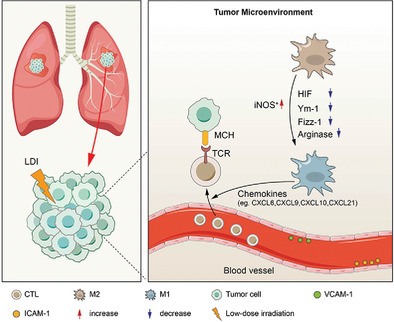
In recent years, immunotherapy has been considered the most promising method to overcome cancer and extend survival. It has been widely reported in preclinical and clinical studies that radiotherapy induces immunomodulatory effects by releasing TAAs and activating immunoregulation-related signaling pathways, initiating tumor-specific cytotoxic T cells, and promoting T cells to enter into tumor tissues. In this manuscript, we summarize the current status of immunotherapy and iRT and the development and additional combination strategies to enhance the efficacy of iRT.
P300/CBP-associated factor (PCAF)-mediated acetylation of Fascin at lysine 471 inhibits its actin-bundling activity and tumor metastasis in esophageal cancer
- First Published: 23 September 2021
Genetic alternations and immune characteristics in patients with small cell lung cancer
- First Published: 24 August 2021
Global patterns of breast cancer incidence and mortality: A population-based cancer registry data analysis from 2000 to 2020
- First Published: 16 August 2021
MAGE-C3 promotes cancer metastasis by inducing epithelial-mesenchymal transition and immunosuppression in esophageal squamous cell carcinoma
- First Published: 04 August 2021
Neoadjuvant immune checkpoint inhibitor plus chemotherapy in rare tracheal tumors
- First Published: 29 July 2021
Estrogen receptor-low breast cancer: Biology chaos and treatment paradox
- First Published: 12 July 2021
Nuclear Aurora kinase A triggers programmed death-ligand 1-mediated immune suppression by activating MYC transcription in triple-negative breast cancer
- First Published: 12 July 2021
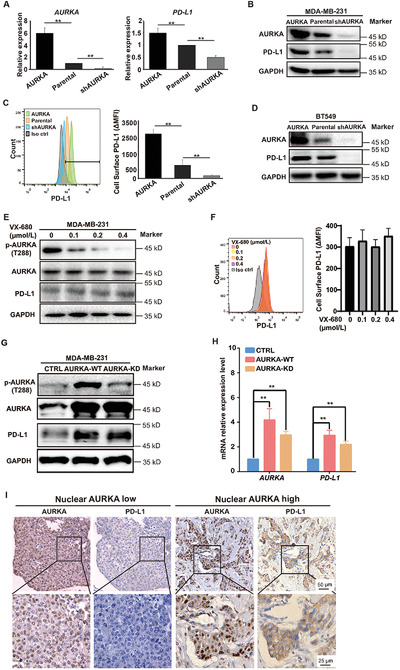
The present study showed that nuclear AURKA rather than its kinase activity induced PD-L1 expression via a MYC-dependent pathway. In addition, downregulation of AURKA led to increased CD8+ T cell infiltration and activation in vivo. Thus, our data provided evidences for the involvement of AURKA in immune evasion of triple-negative breast cancer.
Bevacizumab biosimilar LY01008 compared with bevacizumab (Avastin) as first-line treatment for Chinese patients with unresectable, metastatic, or recurrent non-squamous non–small-cell lung cancer: A multicenter, randomized, double-blinded, phase III trial
- First Published: 29 June 2021
Improved esophageal squamous cell carcinoma screening effectiveness by risk-stratified endoscopic screening: evidence from high-risk areas in China
- First Published: 19 June 2021
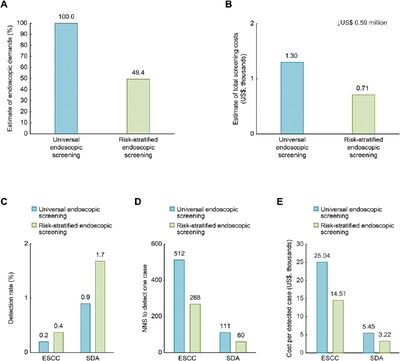
Universal endoscopy screening is recommended for all aged 40-69 years in high-risk areas of China to control esophageal squamous cell carcinoma (ESCC). This study estimated risk-stratified endoscopic (RSES) strategies based on a previously developed ESCC prediction model in a representative Chinese population from high-risk areas. RSES would be a feasible strategy to optimize the current universal endoscopic screening strategy in high-risk areas by increasing efficiency and decreasing screening costs.
KDELR2 promotes breast cancer proliferation via HDAC3-mediated cell cycle progression
- First Published: 19 June 2021
Other Thoracic Cancer articles
In pursuit of a flawless aphrodite: paving the way to scarless oncoplastic breast surgery
Liling Zhu, Shunrong Li, Luyuan Tan, Xiaolan Zhang, Jiannan Wu, Fengxi Su, Kai Chen, Erwei Song
Published: 04 December 2019
The immune landscape of esophageal cancer
Tu-Xiong Huang, Li Fu
Published: 26 November 2019
Long-lasting responses after discontinuation of nivolumab treatment for reasons other than tumor progression in patients with previously treated, advanced non-small cell lung cancer
Hideharu Kimura, Tomoyuki Araya, Taro Yoneda, Hiroki Shirasaki, Koji Kurokawa, Tamami Sakai, Hayato Koba, Yuichi Tambo, Shingo Nishikawa, Takashi Sone, Kazuo Kasahara
Published: 21 November 2019
The ACTIVE study protocol: apatinib or placebo plus gefitinib as first-line treatment for patients with EGFR-mutant advanced non-small cell lung cancer (CTONG1706)
Zhonghan Zhang, Fan Luo, Yang Zhang, Yuxiang Ma, Shaodong Hong, Yunpeng Yang, Wenfeng Fang, Yan Huang, Li Zhang, Hongyun Zhao
Published: 07 November 2019




